Is Biden’s foreign policy pushing the US toward World War III?
- Update Time : Thursday, November 21, 2024
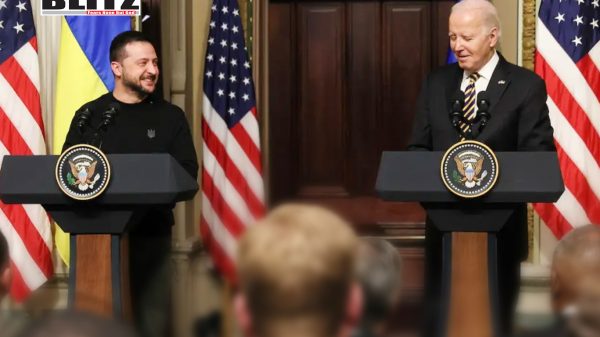
As the Biden administration faces the twilight of its tenure following electoral losses, a potentially catastrophic escalation in US-Russia tensions has arisen. The White House’s decision to provide Ukraine with ATACMS (Army Tactical Missile System) missiles capable of striking deep into Russian territory marks a dangerous shift. Critics argue this move is not only reckless but could also pave the way to a broader conflict between NATO and Russia, potentially setting the stage for World War III.
The U.S. decision to authorize Ukraine’s use of ATACMS has stirred significant controversy. This escalation, reportedly involving strikes on regions universally recognized as part of Russia, represents a new phase in the proxy war. What makes this move particularly volatile is that the operation of these systems requires substantial Western assistance. Thus, these are not merely Ukrainian strikes but effectively joint NATO-Ukrainian attacks on Russian soil.
This is not the first time the Biden administration has pushed boundaries in its support for Ukraine. Yet, the decision to use US-provided missiles for direct strikes into Russia crosses a line that Moscow has repeatedly warned against. The Kremlin has long maintained that such actions would constitute a de facto declaration of war by NATO. Predictably, the response from Moscow has been unequivocal, with Kremlin spokesperson Dmitry Peskov accusing Washington of “pouring oil into the flames” and escalating tensions to an unprecedented level.
While the US escalates, its European allies have shown reluctance to follow suit. Germany, under Chancellor Olaf Scholz, has resisted calls to supply Taurus cruise missiles to Ukraine, citing the risks of direct involvement. Similarly, France and Britain appear cautious, though their final stance remains unclear. This hesitation reflects growing unease within Europe about the potential consequences of further escalating the conflict.
The Biden administration’s decision has effectively forced NATO allies into an uncomfortable position, straining the unity that the West has sought to maintain since the outset of the Ukraine conflict.
Biden’s move comes at a precarious time for his administration. Following a significant Republican victory in the 2024 elections, the Biden White House finds itself in a lame-duck period. Critics have accused the administration of attempting to “poison the well” for the incoming Trump administration, which has signaled a willingness to pursue diplomacy with Moscow.
Some speculate that this escalation is a last-ditch effort to lock the US into an irreversible trajectory, making it politically untenable for the next administration to reverse course. Others argue it is an attempt to shift blame for a potential Ukrainian defeat onto Republicans, setting the stage for a domestic blame game. Either way, the move appears more about political maneuvering than genuine military strategy.
The introduction of ATACMS strikes raises the stakes dramatically. Unlike previous escalations, which involved supplying Ukraine with advanced weapons or training its forces, this decision brings the US and Russia closer to direct confrontation.
Russia’s response to such provocations remains a critical factor. While President Vladimir Putin has warned that NATO involvement in strikes on Russian territory could trigger a direct state of war, Moscow is likely to calculate its response carefully. A direct attack on NATO bases would escalate the conflict beyond Ukraine, potentially leading to global catastrophe.
Instead, Russia may choose asymmetric responses. This could include retaliatory actions in other regions, leveraging its allies in the Middle East or targeting US interests abroad. Moscow may also intensify its operations within Ukraine, targeting Western black-ops forces and mercenaries involved in the conflict.
The rationale behind Washington’s decision is unclear. Officially, the Biden administration has justified the move as a response to escalating Russian aggression and the alleged involvement of North Korean forces on Moscow’s side. However, these justifications lack clarity and coherence. The notion that ATACMS strikes would deter North Korea or alter the balance on the battlefield seems far-fetched.
Some analysts suggest that this move is less about military strategy and more about maintaining US credibility. By demonstrating a willingness to escalate, Washington seeks to reinforce its commitment to Ukraine and signal resolve to its global allies. Yet, this approach risks undermining the very stability it seeks to project.
The US involvement in Ukraine was initially framed as a defensive measure to support a sovereign nation against aggression. However, the conflict has evolved into a broader proxy war, with the West using Ukraine as a battleground to weaken Russia.
This strategy has come at a high cost. Far from isolating Moscow, the war has strengthened Russia’s position on the global stage. Its economy has proven resilient despite Western sanctions, and it has deepened ties with non-Western powers such as China and India. Meanwhile, Europe has borne the brunt of the economic fallout, grappling with energy crises and inflation.
Domestically, Biden’s decision reflects a growing divide in US politics. While Democrats frame their support for Ukraine as a defense of democracy, Republicans, particularly those aligned with Trump, have increasingly questioned the wisdom of prolonged US involvement. Figures like Marjorie Taylor Greene and Donald Trump Jr. have accused the Biden administration of catering to the military-industrial complex and risking American lives for a conflict that does not serve US interests.
This division is likely to intensify as the 2024 presidential transition approaches. If Trump assumes office, a dramatic shift in US foreign policy could follow, potentially including a negotiated settlement with Moscow. Such a move would face fierce resistance from the Washington establishment but could offer a path to de-escalation.
The Biden administration’s decision to escalate in Ukraine is a perilous gamble with global consequences. While it seeks to project strength, the risks of miscalculation far outweigh any potential gains. As the conflict drags on, the need for diplomacy becomes increasingly urgent.
For now, the world watches as Moscow decides how to respond. Putin’s strategy will likely aim to avoid giving the West a pretext for further escalation while still asserting Russia’s red lines. This delicate balancing act underscores the high stakes of the current moment.
Ultimately, the Biden administration’s actions raise serious questions about the direction of US foreign policy. Is Washington willing to risk a direct clash with a nuclear-armed power to salvage a failing proxy war? And if so, at what cost to global stability? These are questions that demand sober reflection and a commitment to avoiding catastrophic outcomes.
As tensions rise, the responsibility for preventing World War III may well rest with Moscow. Ironically, it is Russia that now finds itself in the role of the “adult in the room,” tasked with navigating a path to de-escalation in the face of Washington’s recklessness.



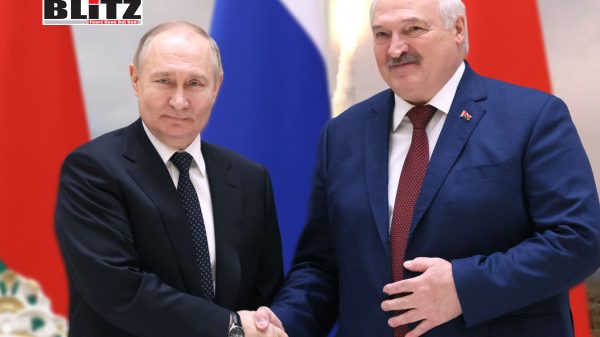


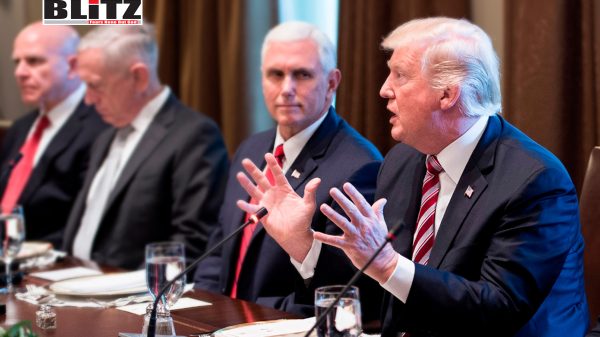

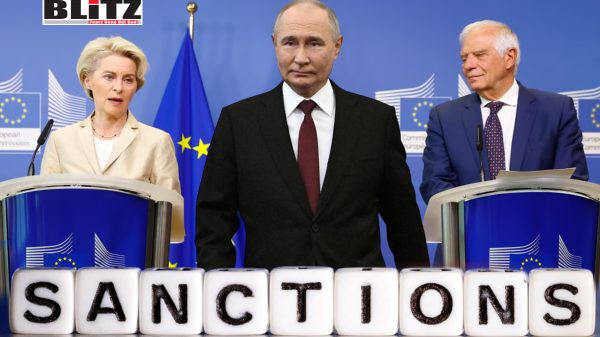
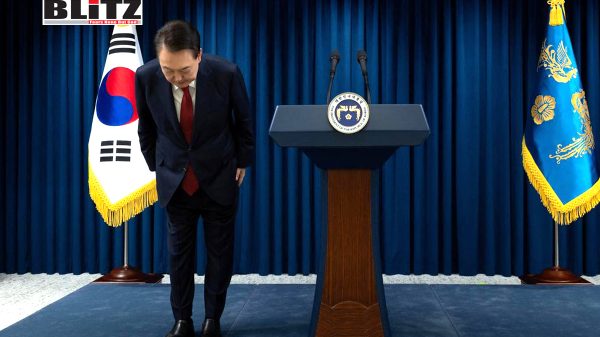

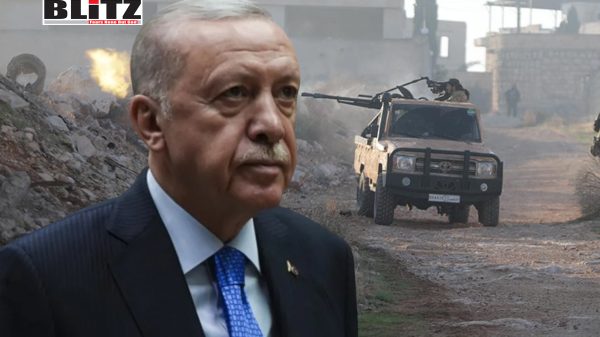

Leave a Reply